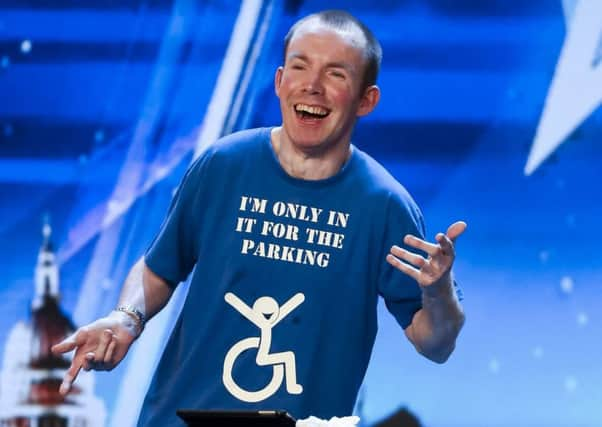Jeremy Balfour: BGT winner Lee Ridley's jokes break down barriers


It is refreshing to finally see disabled people represented equally in the media. For too long, disabled people have been cast in token roles, secondary characters in soap operas or worse still, played by able-bodied actors who have no understanding of how disabilities can affect people’s day-to-day lives.
To watch Lee stand up live in front of an audience of millions and talk about the struggles he faces, whilst making people roar with laugher, will do more to push disability perceptions and boundaries than many academic studies or endless well-meaning discussions.
Advertisement
Hide AdAdvertisement
Hide AdWhat made his act stand out is the personal touch. He didn’t draw on funny anecdotes about life going on around him, he drew on his own personal experience with disability and how he uses laughter and humour to combat the challenges he faces. Comedy is a hugely important tool for disabled people, helping voice their frustrations and showing that whilst physically, life can be a struggle, disability does not mean a sense of humour failure.


I did wonder how confronting his routine might be for most able-bodied people watching. The initial reaction when he walked on stage was one of, dare I say it, confusion and unease, as I think many people still struggle to know how to react when they are faced with disability in such a head-on manner.
The judges started off, in my opinion, in a manner that I felt bordered on tokenism, nervously laughing along with a degree of in trepidation about what was unfolding on stage. And that is a fact of life. People can be nervous and unsure about how to deal with disability. When it is not something you have had to confront or deal with before, it can be hard to know what to say or how to react. But the wonderful thing about watching Lee perform, was after two or three punchlines, everyone in the audience, including the judges, visibly relaxed as the tears of mirth streamed down their faces.
This is what disability needs – to be put in control and take centre stage to finally break down any barriers and taboos that remain. It needs to be normal and mainstream. Not just on television, but in everyday life. In boardrooms, offices, sports grounds and playgrounds across the country, disabled people should be able to get on and do what they do best – contributing to society with the talents and skills they possess – be it comedy, business acumen, sporting achievements or simply being a valued part of a team.
Advertisement
Hide AdAdvertisement
Hide AdLee has a great future ahead of him, with upcoming highlights including performing for the Queen at the Royal Variety Performance and coming to Edinburgh to present his own show at the Gilded Balloon. Lee has done a great job in “normalising” disability – a deserved winner in my eyes.
Jeremy Balfour is a Scottish Conservative and Unionist MSP for the Lothian region